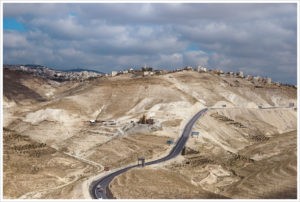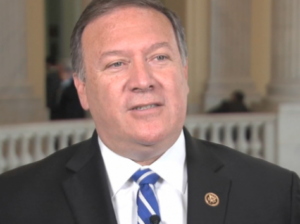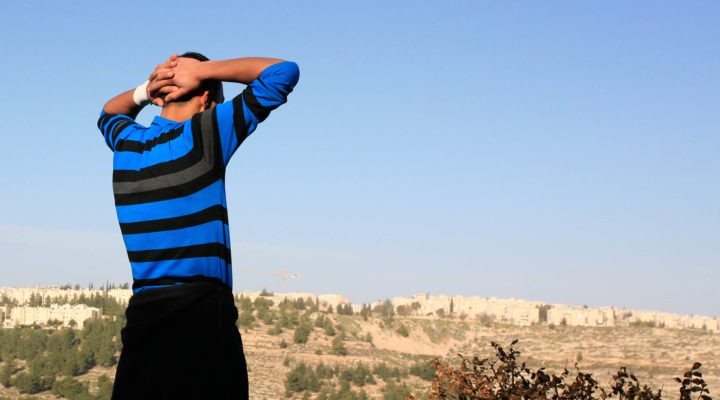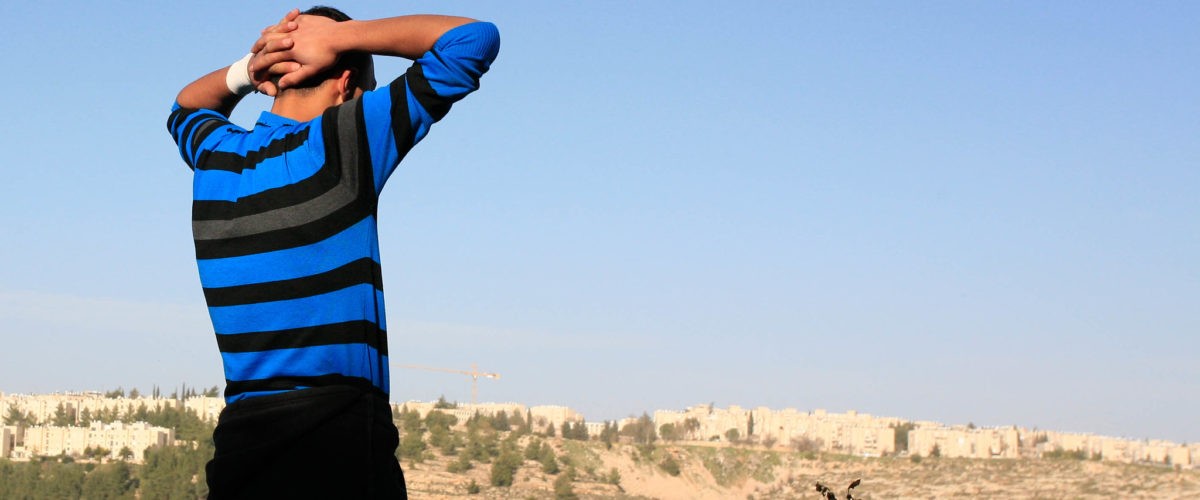A sudden reversal in American policy on Israeli settlements in the occupied West Bank has sparked an immediate and emotional reaction among Christians concerned about justice in the region.
“It’s totally outrageous,” said Leslie Withers, a member of Oakhurst Baptist Church in Decatur, Georgia, and a board member representing the Alliance of Baptists for Churches for Middle East Peace.

Israeli settlements dot the Palestinian Territory. (Photo/Monte Cruz/Creative Commons)
The Trump administration this week announced it no longer views the settlements as illegal or illegitimate – a long time U.S. position. Israel and some conservative evangelicals praised the development, while moderate and progressive religious groups joined much of the international community in condemning the reversal.
“It’s like a gut punch,” Withers said. “It’s enormously destructive.”
President Trump’s decision runs counter to international law and opinion on the settlements, which house approximately 600,000 Jews in communities created in Palestinian areas occupied by Israel. Their presence has sparked periods of overt violence and have barred efforts to create an independent Palestinian state.
In announcing the shift, however, U.S. Secretary of State Mike Pompeo argued the move will make peace more likely.
“The establishment of Israeli civilian settlements in the West Bank is not per se inconsistent with international law,” he said during a Nov. 18 press briefing.
“Calling the establishment of civilian settlements inconsistent with international law hasn’t worked. It hasn’t advanced the cause of peace,” he added.
To many others, the decision makes little sense.
“Anyone who looks at it can see that in order to get a real agreement between Palestinians and state of Israel, you’re going to have to have some of this land in the West Bank given up,” said Curtis Freeman, director of the Baptist House of Studies at Duke University.

Curtis Freeman
It’s also clear the policy, like others from the White House, is influenced by conservative Christians bent on promoting a narrow and even “kooky” theology, Freeman said.
“You have evangelicals taking an ancient, biblical map and trying to force it on the modern world,” he said.
It’s an impulse just as worrisome as the policies it’s influencing.
“I have deep concerns when Christians let highly speculative views about the End Times and their biblical interpretation drive our foreign policy,” Freeman said.
It means U.S. foreign policy “is driven by dispensational End Times scenarios,” he added. “This kind of theology is the happy hunting ground of every kook in America.”
The painful irony is that conservative evangelicals in Israel, along with other Christians in the region, are among the victims of U.S. and Israeli actions.
“These are evangelical Christians who find their communities being devastated by a policy that is driving Christians out of existence,” Freeman said. “To me, that’s unconscionable.”
Numerous Christian voices have risen against the policy decision, Freeman said.
“One of loudest and most clear is Pope Francis, who has been very direct that it was not right to do this,” he said.
The decision has struck numerous other faith groups the same way and prompted many of them to respond quickly, said Kyle Cristofalo, director of advocacy and government relations for Churches for Middle East Peace, based in Washington D.C.

Kyle Cristofalo
Cuts in humanitarian funding and moving the U.S. embassy in Israel to Jerusalem alarmed much of the group’s coalition of Catholic, Protestant and Orthodox Christian groups, he said.
But removing legal objections to the West Bank settlements, Cristofalo said, provoked immediate and numerous statements from coalition members.
“This is quite jarring for a lot of churches,” he said.
All the more remarkable is the responses came despite the season of preparation for Thanksgiving, Advent and Christmas as well as the distraction of the impeachment hearings.
“It speaks to the gravity of the situation,” Cristofalo said.
One of several statements was issued by the United Church of Christ and the Christian Church (Disciples of Christ). It notes that other than the U.S., other countries and the United Nations historically discouraged the settlements.
“We strongly oppose this policy shift and urge the U.S. President and Secretary of State to reconsider, recognizing the harm that such an announcement can have to the prospects for peace and justice, as well as to the U.S.’s global standing,” the groups said.

Mike Pompeo
Frustration also is driving some of the response, Withers said.
“Many of these organizations have been working a long time to encourage U.S. policies that promote just and comprehensive Middle East peace,” she said.
To have so much work undercut by one decision is a lot to bear.
“We all believe that it’s a matter of international law that the settlements are illegal and the U.S. has no legal authority to say they are no longer against the law,” Withers said.
The fate of Christians in the region also is a concern. Their numbers have been declining amid increasingly difficult conditions.
The plight of Palestinians also is well known, she said.
“As Christians, we are called to be peace makers and to work for justice for those who are living under harsh conditions.”


